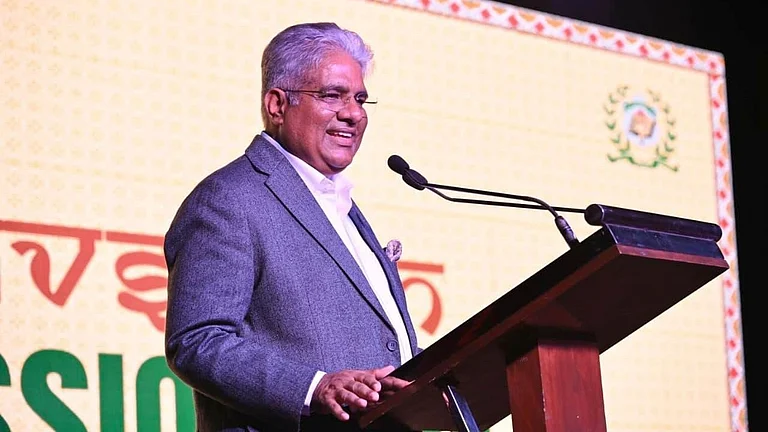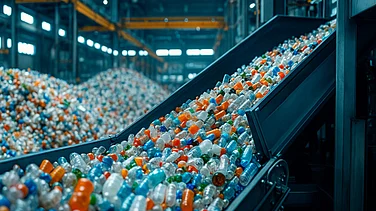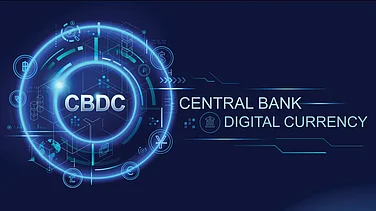In the rapidly evolving business landscape, where consumer expectations are rising, integrating eco-conscious practices into supply chain management is essential. Today, the drive towards sustainability is no longer confined to fulfilling corporate responsibility; it is a critical component for ensuring long-term growth while safeguarding the planet. Given that supply chains account for over 90 percent of global greenhouse gas (GHG) emissions, the onus is on decision-makers to lead this transformation. Regulatory bodies and investors alike are demanding that companies disclose their Carbon Footprint of Products (CFPs), urging organisations to rethink how they source, produce, and distribute.
Various global frameworks like the Sustainable Development Goals (SDGs), the Global Reporting Initiative (GRI), and the Science-Based Targets initiative (SBTi) are guiding the organisational journey towards sustainability. However, the real challenge often lies in addressing Scope 3 emissions, the ones indirectly generated by supply chain operations. However, I believe that where the challenge is greatest, so too is the opportunity to make a positive impact. Companies that have embraced conscious changes in their supply chain networks report a reduction in carbon emissions while experiencing cost efficiency, agility, and service quality.
Let’s explore some strategies that companies can embrace to make their supply chains more sustainable.
Green procurement and its environmental impact
Green procurement is often associated with sourcing eco-friendly materials, but it encompasses a broader strategy that redefines how organisations embed sustainability into their core procurement practices. By choosing to partner with suppliers who focus on waste reduction, energy efficiency, and renewable materials, companies can actively reduce their overall environmental footprint and drive meaningful progress towards sustainability.
The environmental impact of this approach is far-reaching. By aligning procurement practices with sustainable goals, businesses directly address the challenge of Scope 3 emissions, the often-overlooked but critical category of emissions within the supply chain.
This shift in approach also plays a vital role in promoting the circular economy, encouraging the use of recyclable materials and designs that extend the lifecycle of products. By fostering innovation among suppliers and embracing sustainable processes, green procurement not only mitigates risks but also strengthens an organisation’s reputation. It creates a resilient supply chain that supports regulatory compliance and accelerates global sustainability efforts while simultaneously delivering long-term value to all stakeholders.
Embracing digital innovation in enabling energy-efficient client operations
As we move towards a future where operational efficiency and environmental preservation are non-negotiable, leveraging emerging technologies is crucial in transforming the traditional supply chain into a more intelligent, responsive, and sustainable ecosystem. With technologies such as AI, data analytics, and IoT, businesses can help monitor and optimise energy use in real time. IoT sensors provide granular insights into energy consumption, while other AI-driven systems help automate processes, optimising IT infrastructure, logistics, and facility operations to reduce unnecessary energy use.
For client operations, this shift towards digital innovation offers a plethora of possibilities. Automated systems can now intelligently adjust energy usage across IT infrastructure, logistics, and facilities, among other key operations, ensuring that energy is used only where it is needed. This level of optimisation helps reduce carbon footprints and drives down operational costs, delivering both environmental and economic value.
Supplier diversity to empower communities
Supplier diversity stands as a catalyst for community empowerment and sustainable economic progress. By actively engaging minority-owned, women-owned, and small businesses, organisations cultivate more inclusive supply chains while broadening employment opportunities for underserved communities. By partnering with businesses led by women, minorities, MSMEs, and LGBTQ+ communities, companies not only promote social equity but also empower regional economies.
This drives economic empowerment at a grassroots level, as diverse suppliers often recruit locally, creating jobs and fostering skill development within their regions.
Expanding the supplier base also stimulates innovation, with diverse enterprises introducing fresh perspectives to align with evolving supply chain demands. This diversification further reduces dependency on single sources or regions, strengthening resilience and agility across operations. From a sustainability lens, this approach can also help with exploring eco-friendly products, energy-efficient technologies, and ethical sourcing methods, fostering more sustainable value chains.
By embedding these strategies into their approaches, organisations can reshape their supply chains into robust engines nurturing sustainable growth and societal impact. This comprehensive vision of supply chain sustainability not only fulfils immediate regulatory and operational goals but also enhances the broader agenda of global well-being and resilience. As businesses lead the way in sustainable supply chain management, they pave the path to a more sustainable and equitable world, demonstrating that responsible practices can drive both environmental and economic benefits.
(Paneesh Rao is the Chief Sustainability Officer at LTIMindtree.)


























